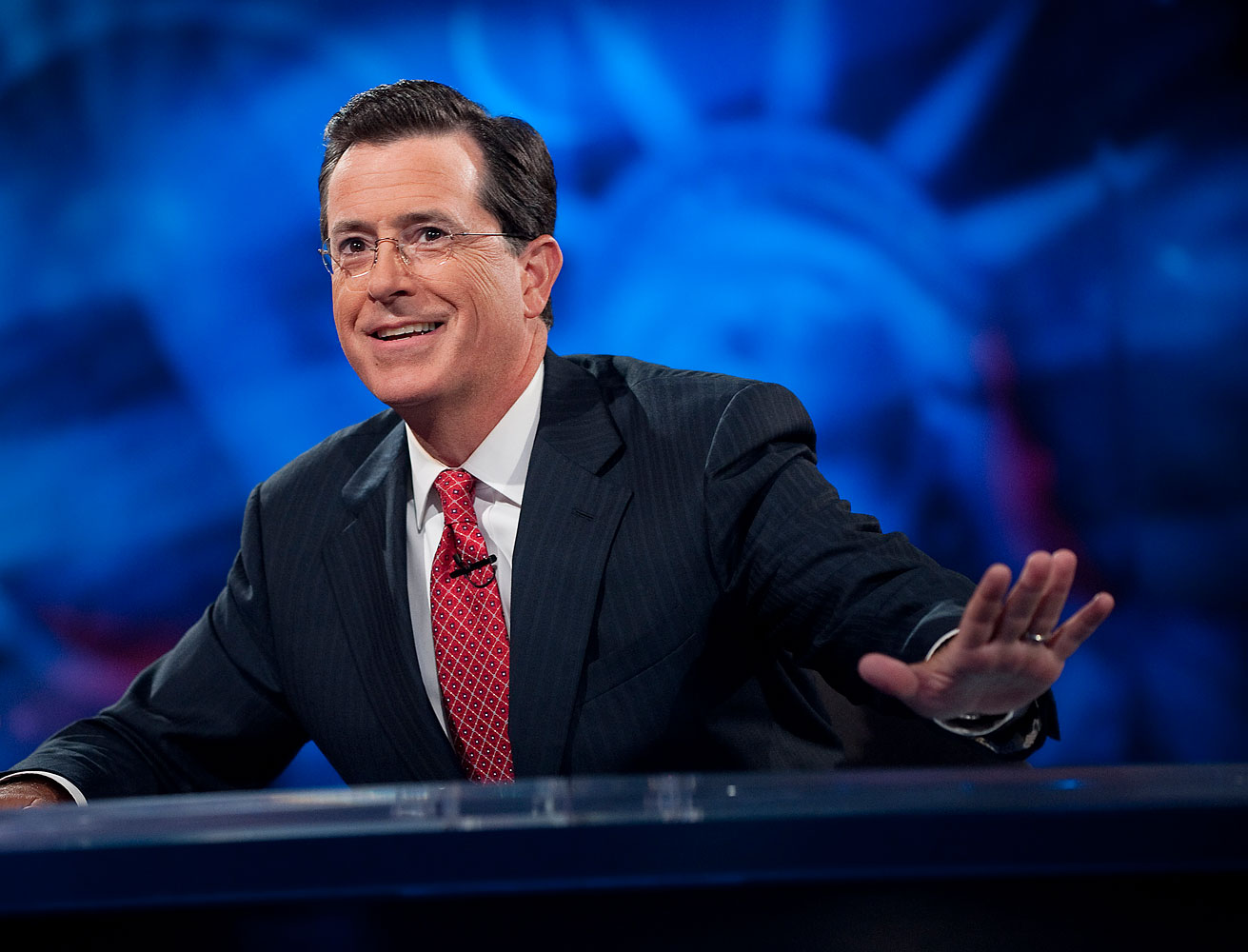
There are some common phrases that come out when people want to derail a legitimate debate on the Internet (particularly on Twitter): “You’re overly sensitive” or “If you weren’t so hostile, people would listen to you” or “You’re taking things too personally” or “I don’t find this offensive” or “You probably just misunderstood.”
After observing the progress of the hash tag we started yesterday, #CancelColbert — which we set up in response to a blatantly racist Tweet about Asians from the Colbert show’s account — we’ve seen some new variations: “Get Over It,” “Deport Suey,” “You’re Anti American,” and even a petition to have Suey Park’s First Amendment rights revoked. This last one is particularly ironic, as Suey and other tweeters to #CancelColbert had simply dared to challenge the First Amendment rights of a white male comedian. It seems “freedom of speech” has the assumed caveat “freedom of speech — for white men.”
If comedians want to protest the racist name of the Redskins football team and to ban racist mascots, as the comedian’s defenders claim is his goal, there are a variety of ways to organize and to highlight this issue. But this isn’t about white liberals wanting to change the name, or their devotion to destroying settler-colonialism: It’s about their feeling entitled to make jokes about “The Other” in the name of “progress.” This does nothing to alleviate the burden of people of color; it simply perpetuates a part of the entertainment industry in which our marginalization remains profitable.
The logic of those who argue “Get Over It” is set up to privilege reckless behavior by placing the blame on the audience. But if the joke isn’t actually racist, then why have so many racist slurs been hurled at those of us promoting #CancelColbert? The outrage surrounding our criticism is about white liberals feeling entitled to engage in hate speech under the guise of “satire.” These white liberals are not mad that we pointed out racism, they are mad that they now have to consider the ways in which they may be racist.
These white liberals are not mad that we pointed out racism, they are mad that they now have to consider the ways in which they may be racist.
Andy Smith on Twitter argued: “Folks seem to think that you can effectively address anti-Native American racism by satirically engaging in anti-Asian or anti-Black racism.” Such an approach presumes anti-Native American racism isn’t distinct and that it doesn’t need to be addressed on its own terms.
We are proud to be what Sara Ahmed defines as Feminist Killjoys — meaning we “Will not laugh at jokes designed to cause offense.” We refuse to believe we have created racism by pointing to it and naming it. As Dave Zirin tweeted in our defense: “if Suey Park pointed at a burning building, then she must be an arsonist.” We don’t accept such silly logic.
#CancelColbert was started by tweeters who wanted to speak back to Colbert’s racism. These protesters were disingenuously labelled the “TwitterPolice” by journalists, even as their hashtag and trend was immediately trolled and the “ColbertNationers” took it upon themselves to educate “the others” on the Art of Satire.
We have some tips of our own that we’d like to share:
Satire is not making props and metaphors of the history (is it history?) of oppression. The problem isn’t that we can’t take a joke. The problem is that white comedians and their fans believe they are above reproach. The standard at ColbertNation for comedy is apparently the throwaway caricature for cheap laughs. We see no reason why this standard must be honored or protected.
The guises of “satire,” “irony,” and “humor” are not shields of armor against criticism. We did not misunderstand satire, “The Colbert Report,” or white liberals. They misunderstood us, and we fought back.
Suey Park (@suey_park) is a writer and activist currently living in Chicago. Eunsong Kim (@clepsydras) is a writer, researcher & educator mostly residing in San Diego.
More Must-Reads from TIME
- How Donald Trump Won
- The Best Inventions of 2024
- Why Sleep Is the Key to Living Longer
- Robert Zemeckis Just Wants to Move You
- How to Break 8 Toxic Communication Habits
- Nicola Coughlan Bet on Herself—And Won
- Why Vinegar Is So Good for You
- Meet TIME's Newest Class of Next Generation Leaders
Contact us at letters@time.com